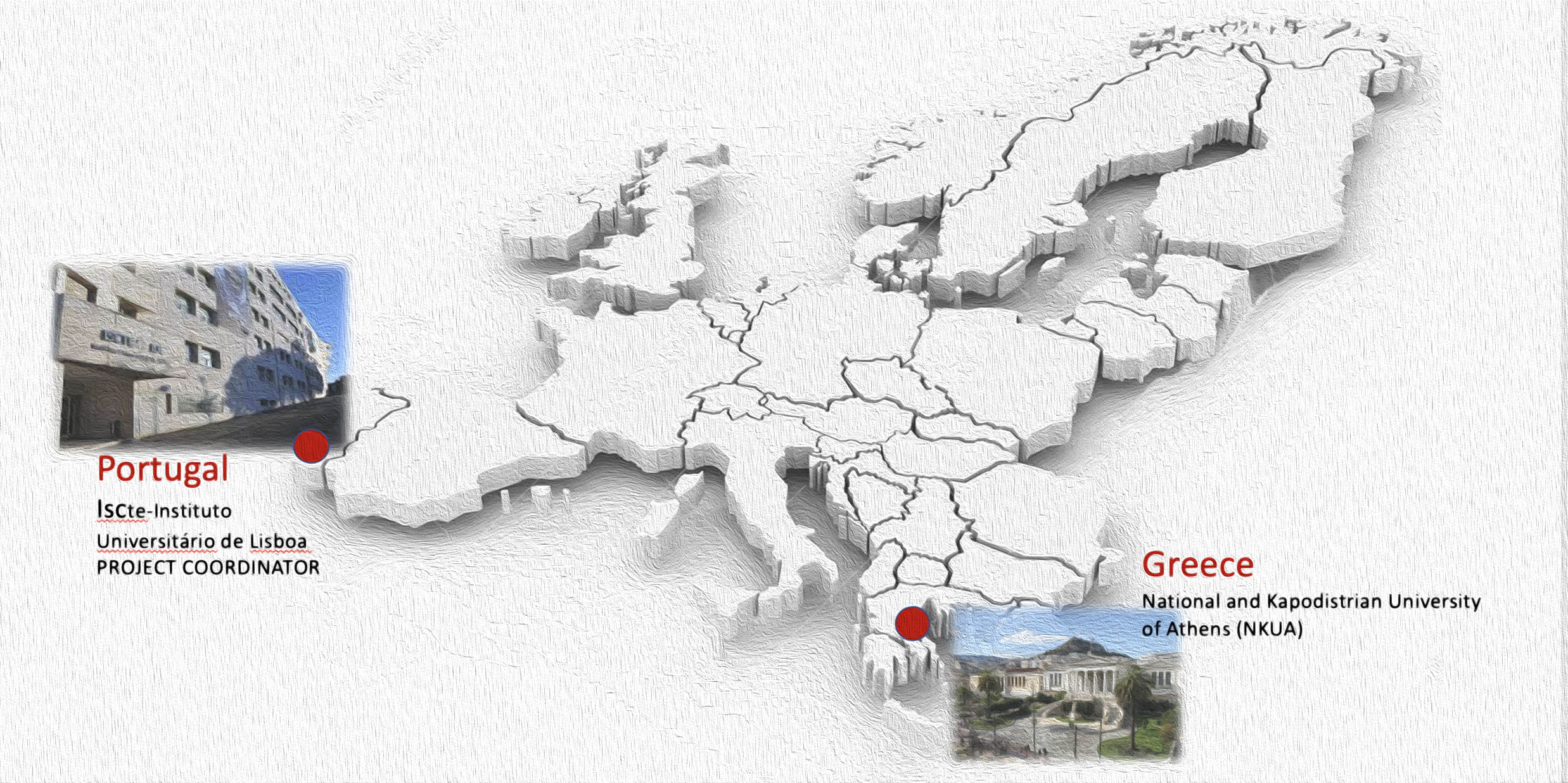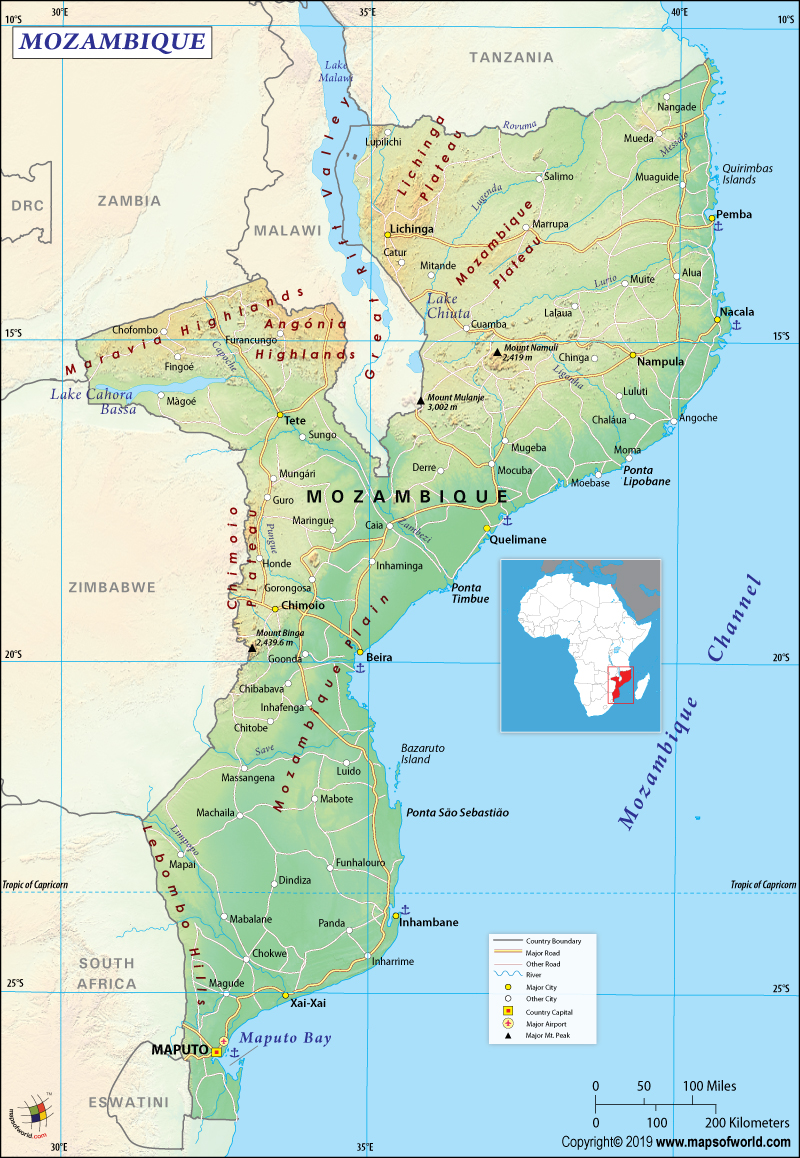European partners

Portugal
ISCTE, Lisbon University Institute, is the is the HumAct lead partner. It is a high-quality public university being among the world’s best 150 young universities and one of the most dynamic and innovative in Portugal, in the areas of management and Economics, Humanities, Social Sciences and Public Policy, ICT and Architecture. Quality and Sustainability institutional policies are strategically embedded in its mission. It offers a multidisciplinary advanced study program in Humanitarian Action providing students with education for prevention, preparedness, response and recovery in HA, including the link with development; capacity for critical analysis and development of responses/solutions for disaster, emergency or continuing HA; creative and autonomous reflection on the impact of interventions, supported by rigorous analysis tools and research techniques adapted to the academic aspect, but also adjusted to the specific needs of the professional area.
Greece
The National and Kapodistrian University of Athens (NKUA) was founded in 1837. It is the leading academic institution in Greece offering quality education, covering extensive research activity in broad academic fields in its 43 departments and more than 200 graduate programs. Research and innovation are enhanced through creative collaborations with leading research institutes, government agencies and consortia around the world. Interdisciplinary and socially impacting research is encouraged. The Department of Early Childhood Education, Faculty of Education, playing a seminal role in HumAct, has extensive theoretical and experiential knowledge in displaced people’s management and runs a MA in Education and Human Rights with a long-standing (1995-2019) collaboration between UoA and the Institute of Education, University of London, awarding a joint degree.
African partners
Cape Verde

University of Cabo Verde (Uni-CV) is a is a public Higher Education institution, located in west Africa, in the Republic of Cabo Verde dedicated to the creation, diffusion and promotion of culture, science and technology. Uni-CV articulates teaching, research and extension in order to promote human development, as a strategic factor of the sustainable development of the country. Uni-CV’s vision is to invest in the scientific, technological, and cultural development of the Cabo Verdean society to promote national sustainability in the context of global globalization. With an internationalization policy, Uni-CV intendeds to provide its students with the opportunity to have contact with other higher education systems to reinforce the skills and abilities acquired during their academic training at university, through the exchange of experiences and knowledge with other students from partner universities. Thus, participation in programs and international mobility gives them a greater maturity of their academic profile. In a context of accelerating changes and increasingly ephemeral paradigms, international mobility of teachers provides the opportunity to update concepts; exchange experiences among university teachers and participate in debates on new teaching and learning methodologies leading to the creation of new knowledge in international multidisciplinary teams. The Uni-CV Strategic Plan clearly defines the importance of enhancing international partnerships and international mobility for the implementation of training projects, especially in postgraduate studies. The Research and Extension programs are all supported in partnership projects with researchers from partner universities. Increasing the internationalization of the university’s courses by strengthening the institution’s presence in international partner networks and in academic and research mobility programs – “in” and “out” – is one of the institutional development strategies. One of the goals of the Strategic Plan is the creation of Research Centers, in partnership with partner universities. This can be accomplished through the mobility programs, as they promote contact between researchers. Uni-CV is composed of 5 training units with a total of 42 Bachelor Programs, 18 Master Programs, 9 Technical vocational courses and 3 PhD Programs dispersed in two islands. Uni-CV has over 4858 students, 556 of permanent teaching staff and 180 part-time teaching staff. The tendency is that the university grows each year in number of students, academic offer, and the number of staff.
Universitade de Santiago (US), was stablished in 2008. It consists of: four departments offering 17, 4-year B.A. and 7 M.A. programmes. In addition, US offers vocational degrees such as multimedia development, electromechanic studies, solar power system, rural tourism and ecology. The Masters qualifications include Public Policy and Local Development, Communication Sciences, Human Resource Management, and Pedagogy.
Mozambique

Rovuma University (UniRovuma) is a higher education institution created by the Mozambican Government in 2019. UniRovuma has its headquarters located in Nampula city in the North of Mozambique. With an academic body of 481 qualified professors, it currently offers both presence and distance-learning, multi-modal teaching and other learning opportunities for about 14500 students. UniRovuma has a current educational offer of 10 MSc degrees and 39 BSc degrees. The Rovuma University strives to achieve excellence at national and international level, to train professional staff capable of contributing to sustainable economic and sociocultural advance, and fully contribute to community development. It is currently adopting a technical profile, mainly geared towards engineering, and practical, with an impact on communities, which should help to solve the problems that constrain the creation of employment and self-employment and which will promote faster and more sustainable development of Mozambique, through practical and meaningful education. In the area of Humanitarian Assistance, UniRovuma intends to introduce new and adapt existing curricular units, that would enable collaboration and produce high quality educational offer, with the ultimate goal of creating better conditions for society in the face of humanitarian challenges, especially natural disasters such as cyclones, floods, among others that have been occurring mostly in the north of the country. Therefore, UniRovuma is determined to create productive partnerships with international as well as local more experienced partner institutions, in order to achieve the desired quality.
The Púnguè University (or UniPúnguè) is a Mozambican Public University which headquarters are located in the city of Chimoio, Manica Province. The University was created by Decree-Law No. 4/2019, of February 15, 2019, approved by the Council of Ministers as a result of the restructuring and decentralization of the Pedagogical University of Mozambique and the merger of the former Delegations of Manica and Tete. Púnguè University is a legal person under public law and enjoys statutory and regulatory, scientific, pedagogical, administrative, financial, patrimonial, and disciplinary autonomy.The University’s name refers to a river, in this case the Púnguè River, which is one of the most important river basins in central Mozambique. Its mission is to train high quality professionals so that they contribute creatively to a sustainable economic and socio-cultural development. Currently, it offers 26 undergraduate courses, 3 M.A. courses, one post-graduate course in teaching methodology, and has around 6,000 students.
Universidade Pedagogica (UP) was established in 1985 and in 2019 developed into five separate universities. It offers in-class and distance, multi-modal teaching and learning opportunities from short-course specialist offerings to PHD level, through six established faculties. UP has extensive international collaboration across the African continent, in Europe, the Americas and Asia, and it houses 5 research centres, including the Center for Ethnomathematics and Ethnoscience Studies, and theCentre for Innovation and Technology Transfer.


